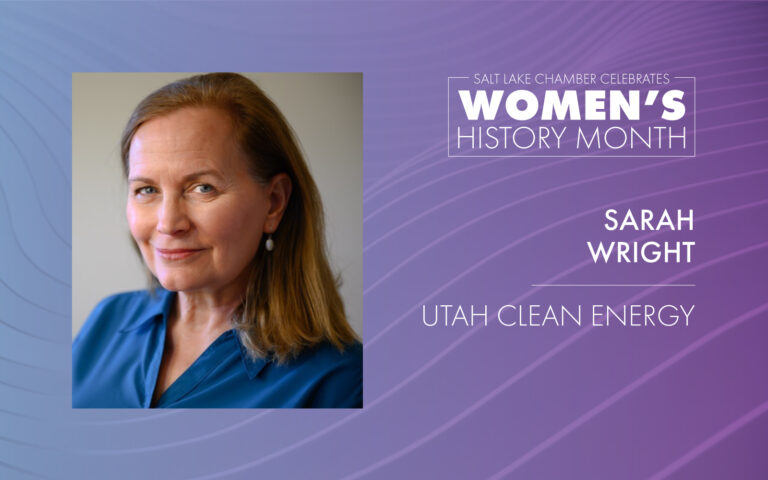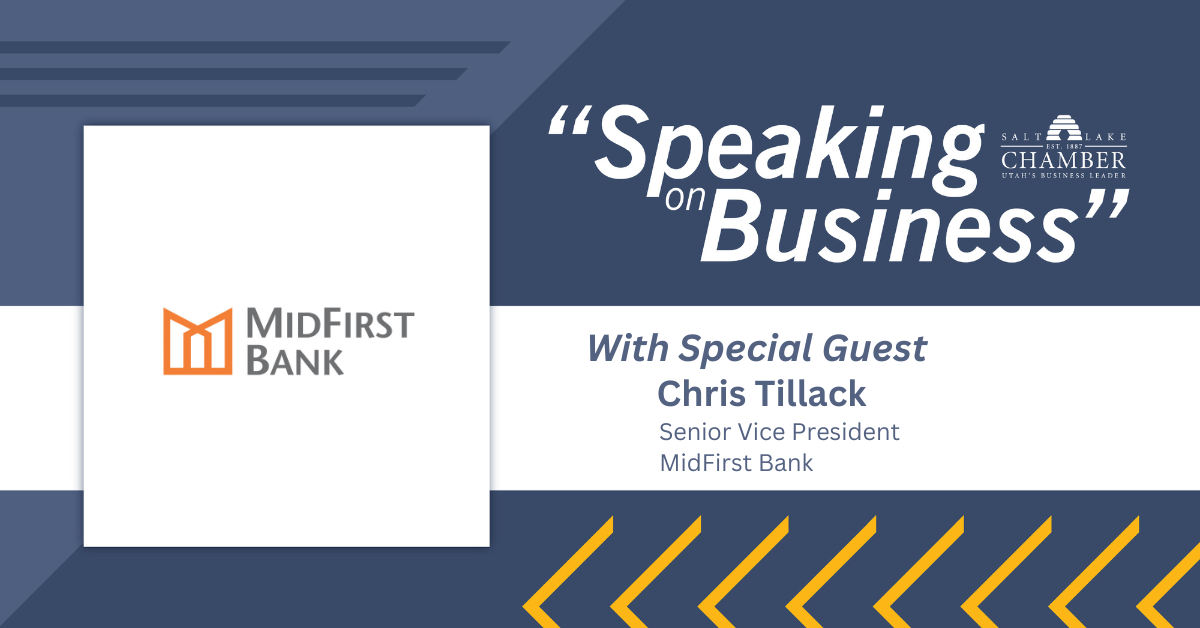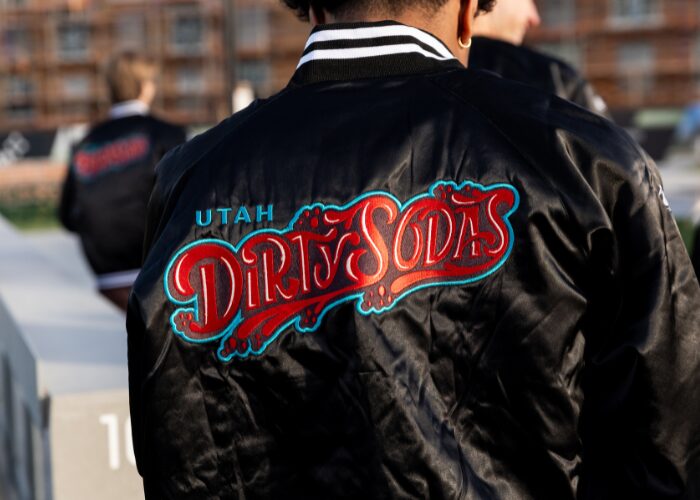During March, the Salt Lake Chamber is highlighting influential women in Utah. By sharing their stories and advice, we hope to bring awareness to the importance of Women’s History Month.
What does Women’s History Month mean to you?
Women’s History Month is about having pride for our accomplishments and for women receiving the recognition we deserve for the countless contributions made to the world. I’m glad we have a full month, but in reality, it should be all year long.
Women care deeply about their families, communities and leaving the world a better place — oftentimes, working to solve seemingly intractable problems. To me, the 2022 theme, Providing Healing, Promoting Hope, means that we must have hope and put that hope into action. In turn, we can build on this hope and enroll more people in a cause. This is relevant now more than ever, with everything that we’re facing.
What does success mean to you? Share your path to success and the challenges you’ve overcome to get there.
In the work that I do, success is raising awareness about the risks and impacts of climate change and having that understanding lead to meaningful action. This is accomplished through countless conversations with people of different backgrounds and beliefs. When you work from a place of common values, you can always find common ground. We all care deeply about our families, and whether we understand it or not, I’ve learned we all care deeply about the impacts of burning fossil fuels and the impact that has on our climate, pollution, health and economy. Ultimately, I think success is working from a place of shared values and coming together around solutions — in whatever area you’re working on.
Share an experience of a past initiative or project that you’re proud of.
I’m very proud not just of the work that I’ve done, but also of Utah. We launched the Utah Climate and Clean Air Compact in 2020 and were able to bring together a diverse group of community and business leaders — now over 175 — to acknowledge the impacts of human-caused climate change and air quality issues, that they impact all of us and that we need to work together on solutions. The number of signatories and impact continues to grow.
How can others follow in your footsteps?
There are so many issues that need passionate leaders. Twenty years ago, when I founded Utah Clean Energy, people told me I was crazy to work on this issue in Utah. However, when I looked at my young son and his generation, I knew that I needed to do this work, and that passion is what drives me today. It’s easy to follow your passion if you believe in yourself and see a need for positive change in whatever realm you’re working on. Taking those first steps can seem daunting; however, in those early days, I had several strong women who helped me along my path. I didn’t really know what I was doing, but if you put yourself out there, people will help. There are always people who are passionate about your issue. Find them, work with them and don’t be afraid to ask for help.
What’s next? What are your current and future aspirations?
In the future, I want to continue to grow my leadership and Utah’s leadership on climate solutions. The people of Utah are pragmatic and caring, so we should be the conservative state that rolls up our sleeves to be at the table and move climate solutions at the scale and pace necessary to address this pressing problem.
What have you learned from your female mentors?
There have always been strong women who have been happy to teach and mentor me. When I started in the environmental field and working on climate change, I had no idea what I was doing. The two women who helped me most were retired and just saw what I was trying to do and taught me how to work in the legislature and present at different venues.
The three things I’ve learned from my female mentors are: 1. Be brave and stand in your power. Because I’m an introvert, doing this was critical in advancing my work on climate change. Still to this day, I have to force myself to put myself out there, over and over again. 2. You don’t need to have all the answers in order to solve tough problems. In fact, I think it’s better when you don’t because then we work collaboratively to find the best solutions. 3. Just because someone might not seem like a natural ally, doesn’t mean you can’t work together. I’ve learned that suspending judgment, listening carefully and critically and being open-minded are vital to collaborative problem-solving.
*Stay updated on more stories, events and information on Women’s History Month by visiting the Salt Lake Chamber’s Women’s History Month website and engaging in our weekly challenges.


